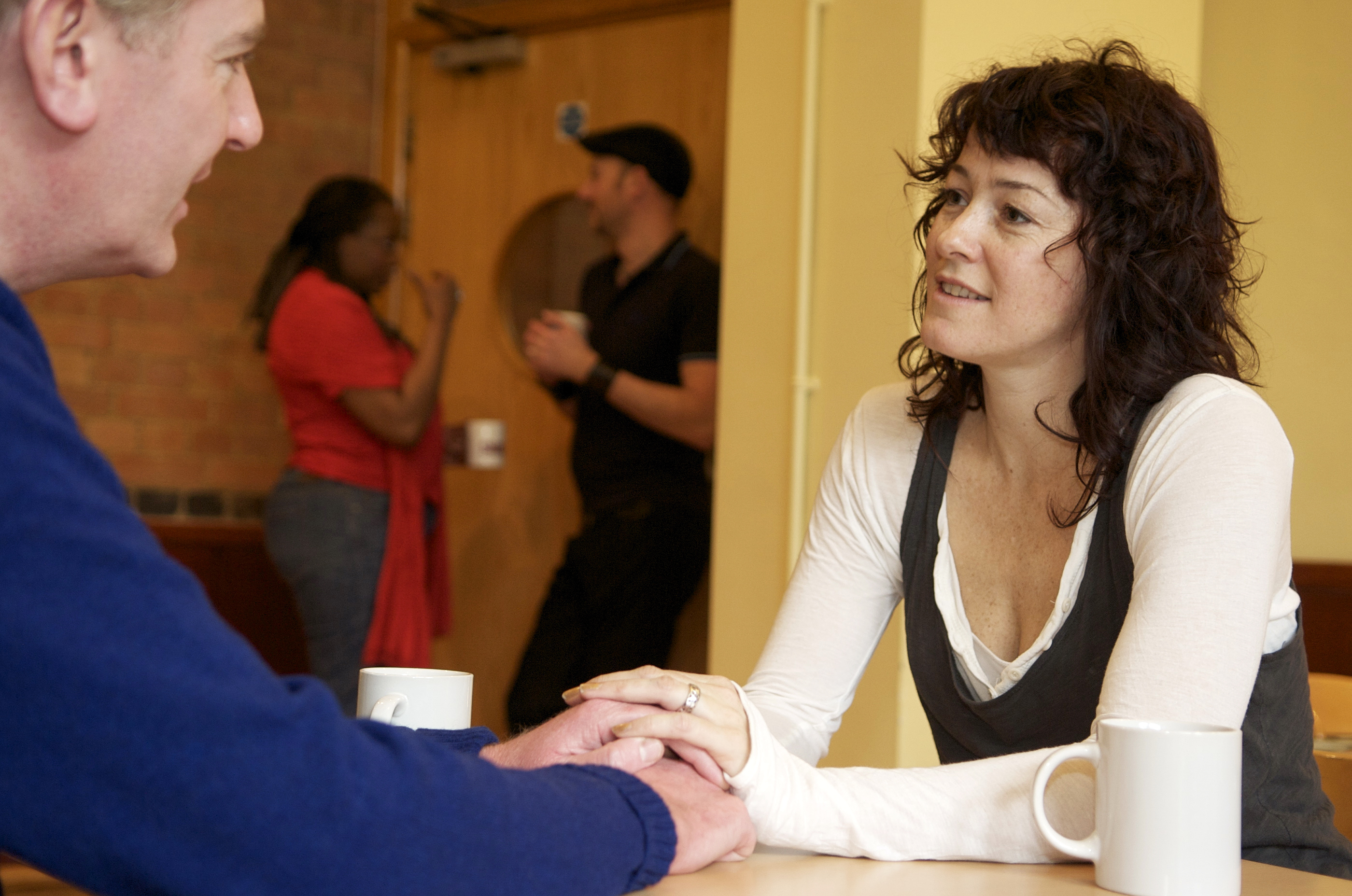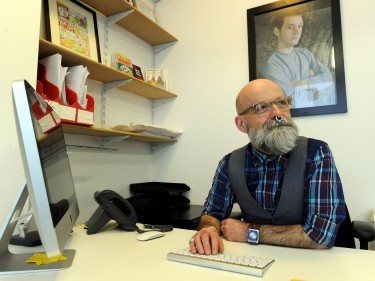Thirty years after HIV testing was introduced in the UK, Andrew Youngson finds out what it means to live with the condition today
It has been three decades since HIV testing was introduced in the UK. Since then, the treatment of the virus has taken huge steps forward and it is no longer the death sentence it was once considered.
Colin McKay, below, groups and support worker for the Aberdeen branch of Gay Men’s Health, said: “If the medication works for you, which it does for most people, it’s fantastic. People can now live long and full healthy lives as HIV positive.”
But despite the medical advances – and the fact that the vast majority of people with the condition lead normal lives unhindered by symptoms – the stigma attached to it still exists.
Carina Strachan, who works at Terrence Higgins Trust Scotland’s Aberdeen branch, added: “There isn’t someone who has come to us who hasn’t had negative experiences when it comes to disclosing their HIV.”
In a two day series, The Press and Journal speaks to local people living with HIV about their experiences, and what needs to be done as we strive for a stigma-free future.
“I’ve still to find what my passion is, but I’ve got plenty of time”
ANN’S STORY
Looking back to 2001 when she was first diagnosed as HIV positive, Ann finds her knowledge of the condition was low.
“I was very ignorant. I thought I was going to die – that it was all over. I thought back to the TV commercials of the 1980s and I thought it was going to be like that,” she said.
Now in her early 50s, she has a much healthier perspective, but it took a long time for the former oil industry recruitment executive to come to terms with her condition. This is partly because she had been facing other issues at the time. She had not long beaten cancer, and was also tackling a problematic relationship with alcohol.
By the point of being diagnosed, she had grown quite ill.
“I went to the GP because I was having problems with bad reflux, and I had incredible fatigue and aching bones all the time. I would have gone earlier but because I drank, it wasn’t a priority for me then,” she explained.
During a two-month stint in hospital, Ann’s strength was built up, and she had time to begin contemplating what life with HIV would mean. However, it would be some years to come before she could set her life on a healthier course.
Flash-forward to today – Ann’s viral load has been undetectable for more than 10 years, and she has been sober for most of that time. Medication-wise, she has gone from an initial 15 pills every morning, to her current one tablet a day.
With the support of her sister and aunt, close friends and fellow members of the Terrence Higgins Trust Scotland support group, she has gained a bright outlook on the future.
What goals has she set herself, I asked?
“I’ve still to find what my passion is, but I’ve got plenty of time,” she said with a smile.
“I may do something in make-up and go to college, plus I’m always going to be interested in talking about HIV. I’m getting more confidence in speaking about it all the time.”
She considers herself lucky to have a strong support network, but is still mindful about opening up about her HIV status to new people. Like many in her position, she worries about misguided thoughts many people still have about the condition, and the kind of people who contract it.
“I think a lot of people automatically think it’s just girls sleeping around, people in Africa and gay men. It’s not. The lifestyle in Aberdeen, especially with the oil industry and people having many different partners…I mean you only need to have one person or partner to get this. Anybody is open to it.”
“I just wanted to hide and shut myself away from everybody”
PAUL’S STORY
Six months after being diagnosed, Paul’s CD4 level – the indicator of how well your immune system is working – fell to 20. To give some context, a healthy individual’s CD4 count is usually somewhere between 500 and 1,500.
“I was delirious. I was just so ill I didn’t know what was happening. I was just hiding from everybody,” Paul said.
“A lot of my family didn’t even know I was gay, so this was just another thing to hide. It would have been another blow to them so I hid it. To be honest, some of my family still don’t know.”
The 44-year old kept his HIV status a secret from all but one friend, and eventually his closest family members. He simply couldn’t face the world outside that small network.
“I just wanted to hide, and shut myself away from everybody,” he said.
“A few people knew and that’s the way I wanted it to stay. I didn’t want anybody to know how ill I was. Some people thought I was dead – that’s how long I shut myself away for.”
His treatment was punishing, with the initial 24-pills-a-day regime bringing horrendous side effects, from nausea to dramatic weight loss. The amount of pills he was taking over a prolonged period also led to him developing peripheral vascular disease – a hardening of the arteries, which caused pain in his legs whenever he walked.
His condition worsened when he began having fits. After a series of scans, it was discovered that the virus had damaged parts of his brain, and he had developed epilepsy.
“So they gave me more medication for that too,” he laughs, shaking his head.
Today, 13 years after first being diagnosed as HIV positive, Paul is down to three pills a day – a vast improvement for which he is constantly thankful. While he is grateful for the wider network he now has around him – which includes other members of the Terrence Higgins Trust support group – Paul feels he couldn’t have reached this point any sooner.
“Because I’ve done it on my own and not been forced into anything, it’s been easier, and I’m now better able to talk about it. Especially to the group. I feel I’ve got something to say now, and to help other people and stop it happening to anyone else.”
So much has Paul’s confidence grown, he now volunteers at the group, and regularly reaches out to new members.
“I feel good about that. It’s good that they feel they can speak to me. And I feel I can help them with my experience, and because I’ve been living with this so long. I can tell them, ‘everything’s going to be fine.’”
For further information about local HIV positive support groups, visit www.gmh.org.uk and www.tht.org.uk
Read our brief history of medical advances in the treatment of HIV

